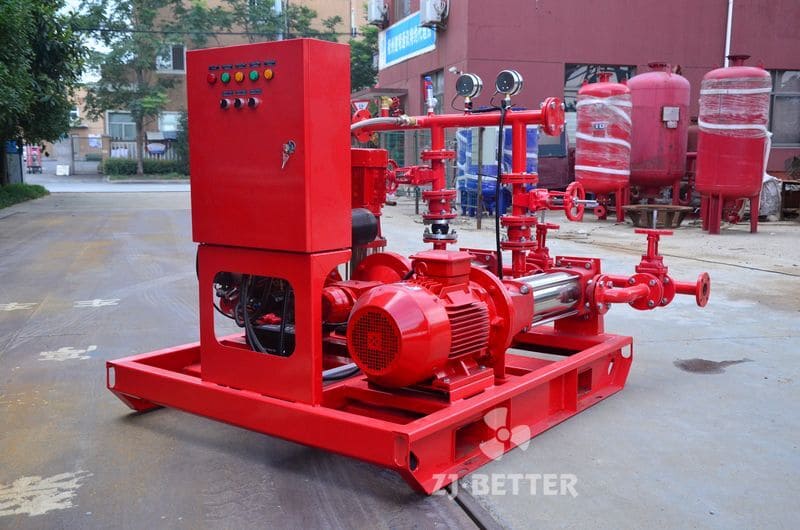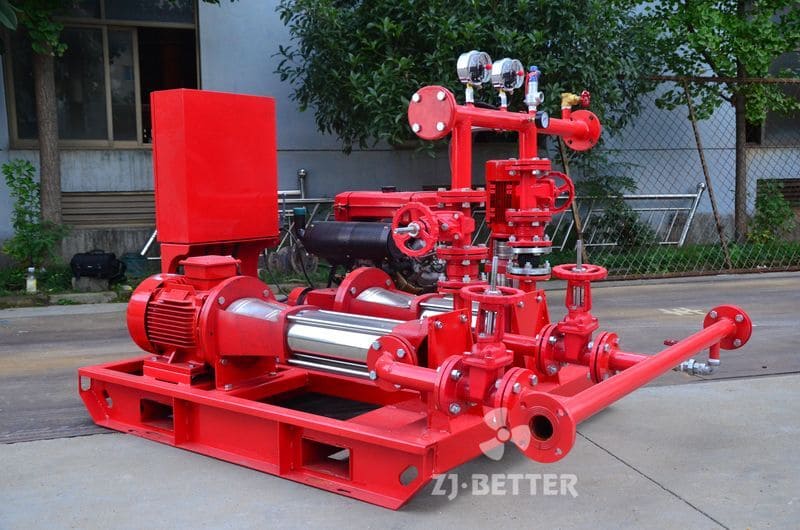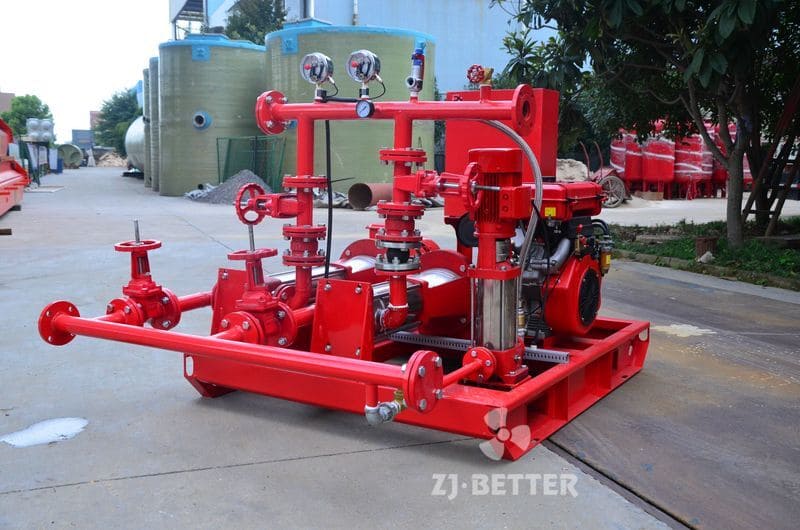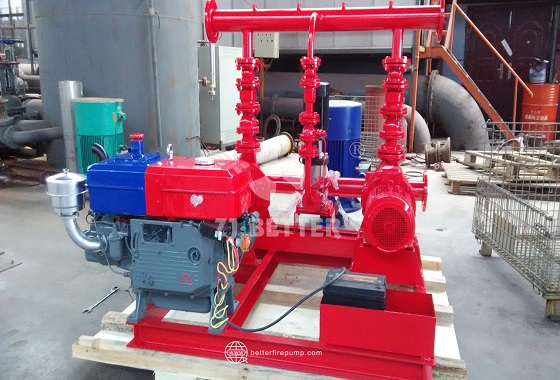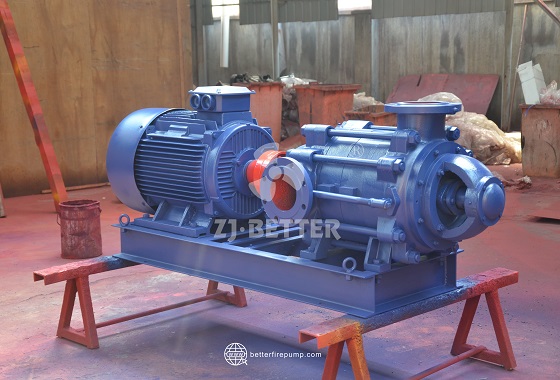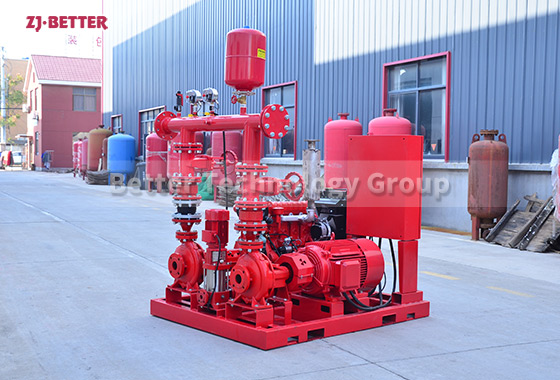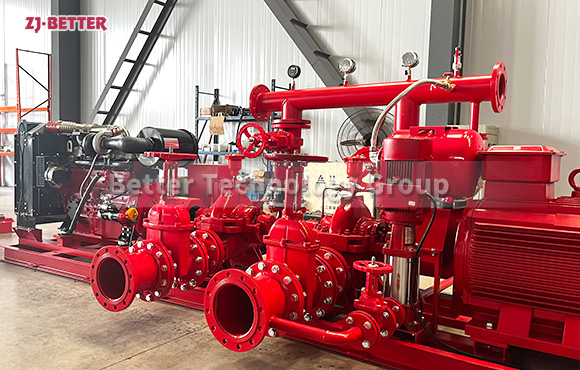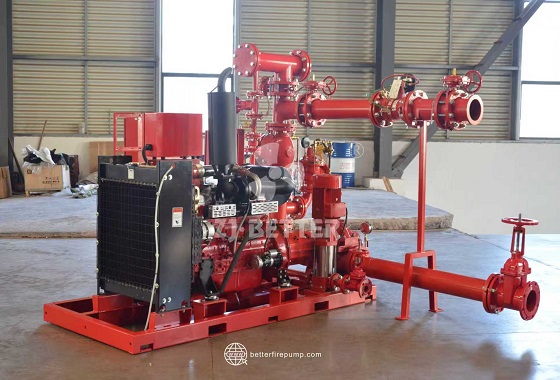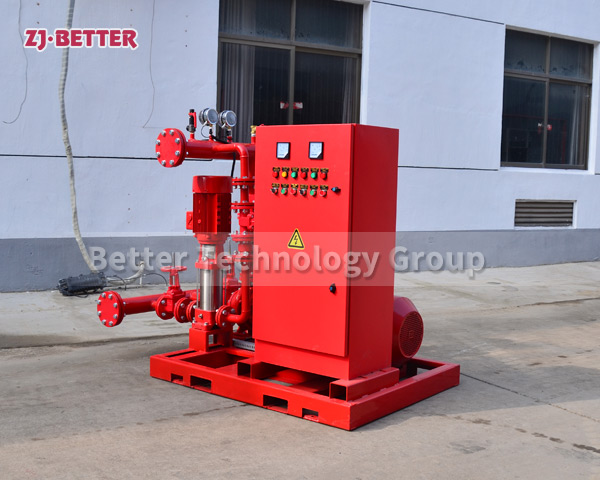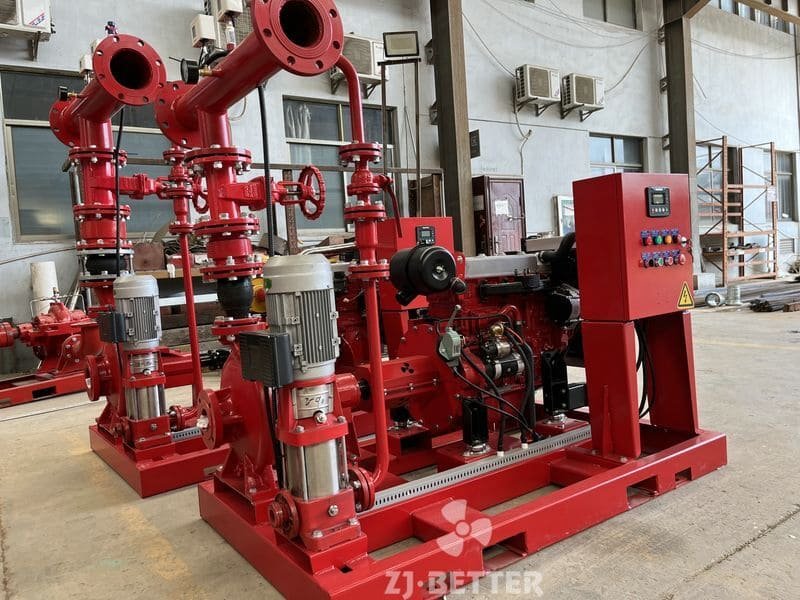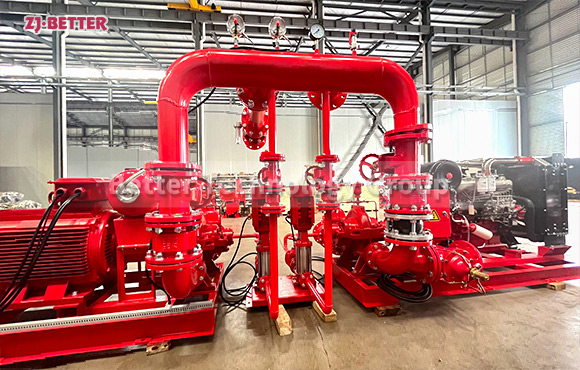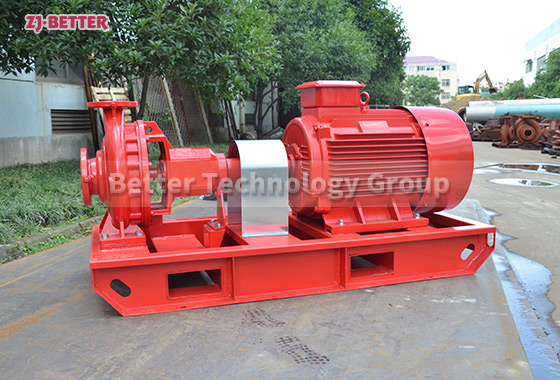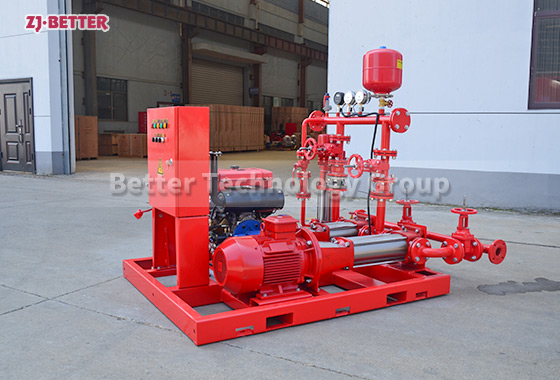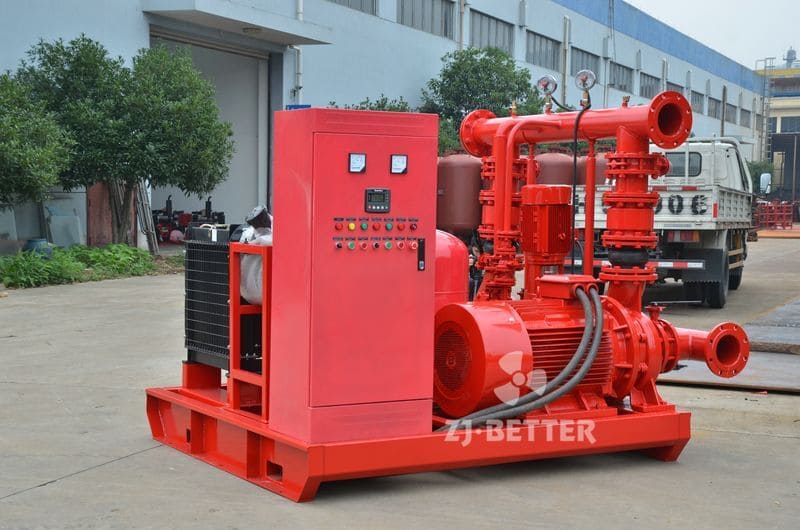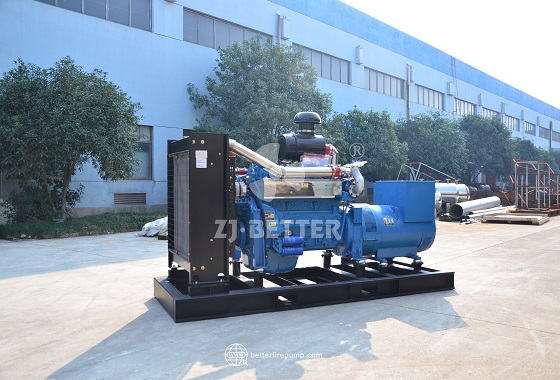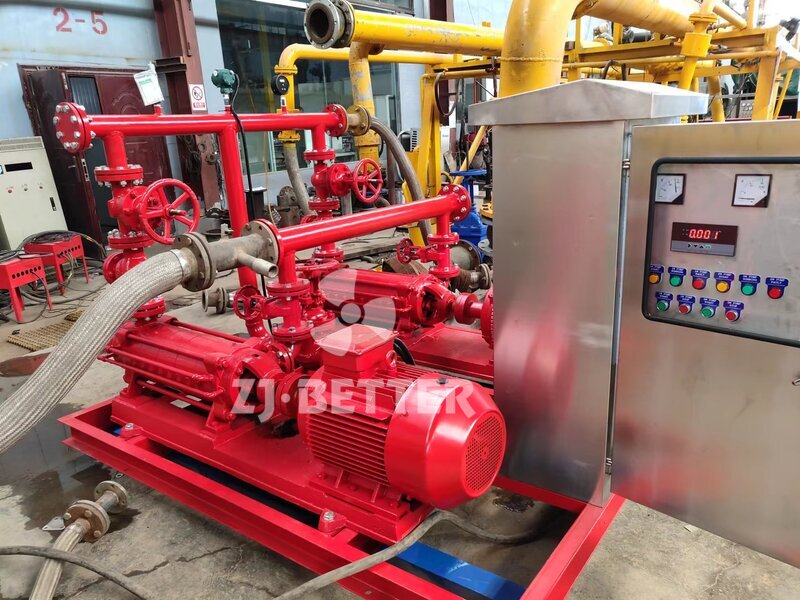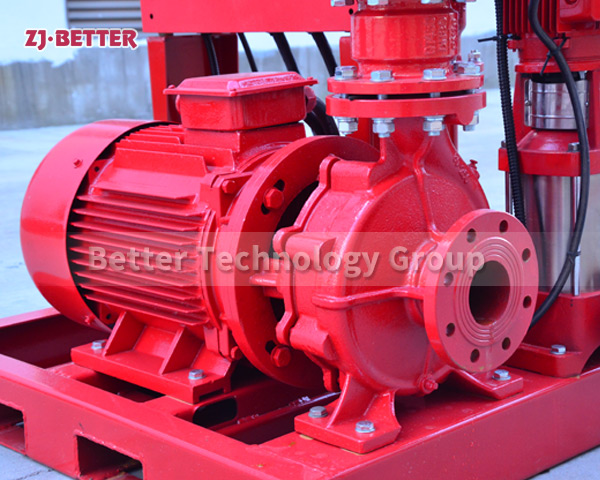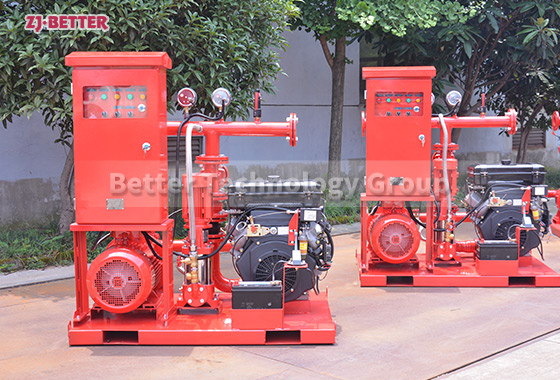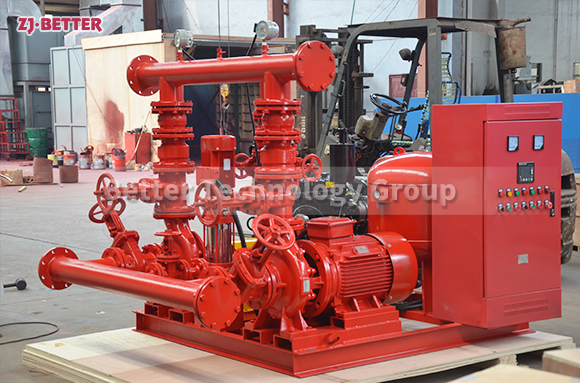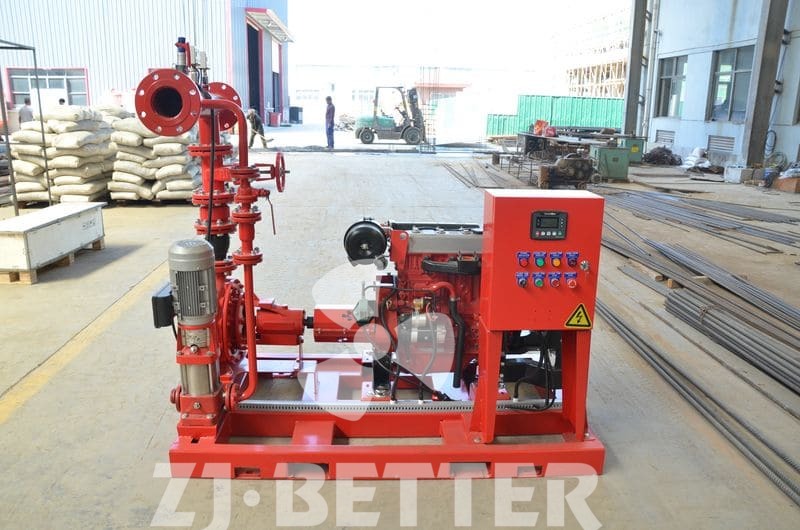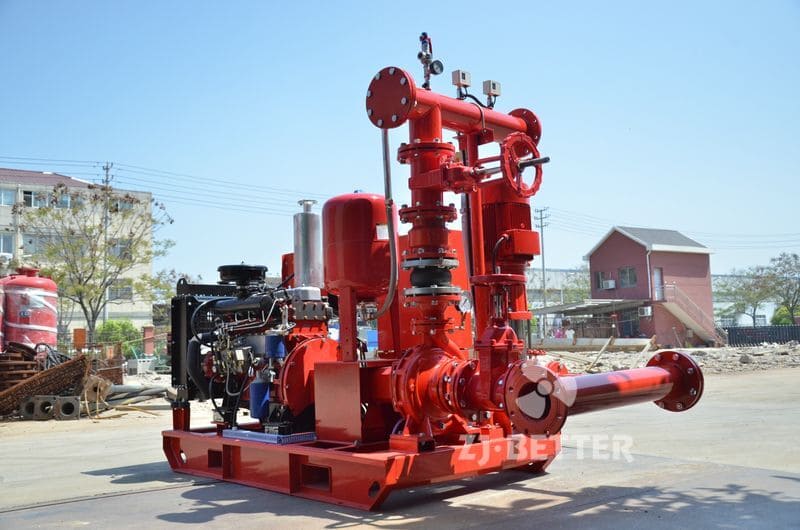Multistage Jockey Emergency Fire Pump Equipment
EDJ fire fighting equipment consists of electric pump + diesel pump + jockey pump. Both the electric pump and the diesel pump use a multistage jockey pump with large flow and high lift. The diesel engine can be started without electricity. It is suitable for any fire protection occasion. The company has a professional sales and production team, and the choice of pumps can be customized according to their own needs.
A jockey pump is a small pump connected to a fire sprinkler system to maintain pressure in the sprinkler pipes. This is to ensure that if a fire-sprinkler is activated, there will be a pressure drop, which will be sensed by the fire pumps automatic controller, which will cause the fire pump to start.
A jockey pump is sized for a flow less than the flow to one sprinkler in order to ensure a system pressure drop. The function of jockey pumps is an important part of the fire pumps control system.

